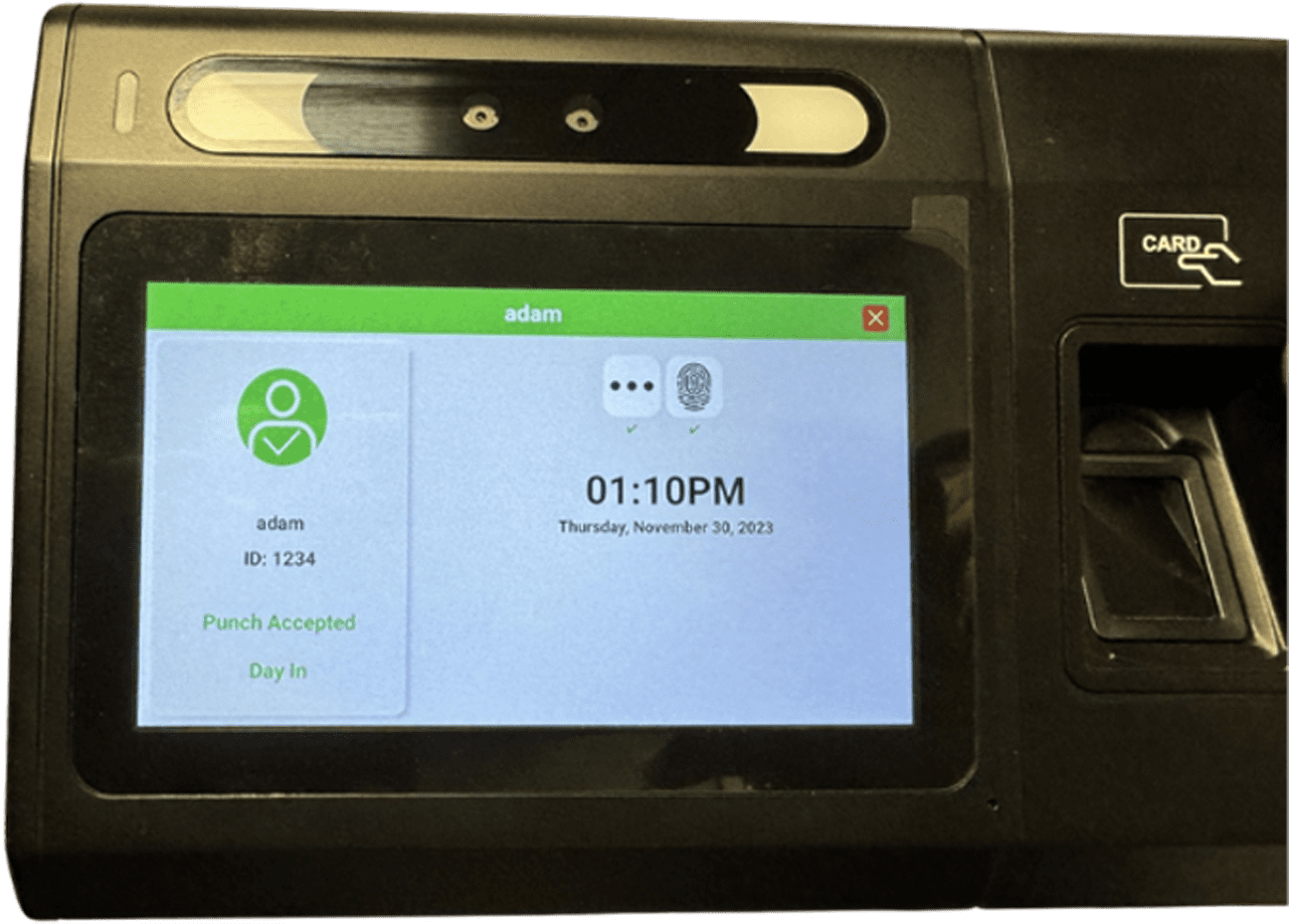 4.7
|
80+ REVIEWS
4.7
|
80+ REVIEWS
Hardware Clocks
Request a Quote
7,500+ organizations trust Netchex
Save Time & Money
Reduce manual data entry, administrative overhead, and payroll processing time with clocks that sync to payroll
Improve Security
Prevent unauthorized access with biometric fingerprint recognition allowing only authorized employees to clock in and out
Increase Compliance
Comply with labor regulations and reduce compliance risk with real-time punches and up-to-date time and attendance data.
Engage Employees
Increase adoption with an easy to use clock system that employees will want to use.
Modern Clocks that
Solve Todays Challenges
- Employees clock in/out with pin entry, proximity/RFID card or facial recognition
- Clocks feature touch screen interface with department transfer menu
- Punches sync to Netchex time and attendance every 5-10 seconds
- Punch restrictions on lunch breaks and punch times flow over from payroll group rules
- Biometric clocks eliminate buddy punching
- Biometric consent is collected
- Punches flow from Netchex time and attendance to payroll

I Want to Order
a Clock
I Want to Order a
Clock Part
Please contact your admin to submit a ticket
Request
Support
Hardware Clocks FAQs
Hardware clocks, also known as time clocks or timekeeping devices, are physical devices used to track and record employee attendance and working hours. These clocks are designed to accurately capture time data, which can be used for payroll processing and workforce management.
Hardware clocks typically use various methods to track time, such as proximity cards or PIN codes. Employees use these methods to clock in and out, and the hardware clock records the timestamp. The recorded data can then be transferred to a payroll or time management system for processing.
Hardware clocks offer several benefits, including:
Accurate time tracking: Hardware clocks eliminate the need for manual timekeeping, reducing errors and ensuring accurate records.
- Time theft prevention: Biometric features and secure identification methods help prevent buddy punching and time theft.
- Streamlined payroll processing: The data captured by hardware clocks can be seamlessly integrated into payroll systems, reducing administrative tasks and improving efficiency.
- Compliance with labor regulations: Hardware clocks help businesses comply with labor laws by accurately tracking employee work hours and breaks.
Netchex has the option to purchase or rent your hardware clocks. Companies can purchase hardware clocks for $2,475 + $200 annual maintenance fee or rent them for $99/month.
Purchased clocks include a 1-year manufacturer’s warranty. If your clock needs to be repaired or replaced, contact Netchex support and we will help troubleshoot the issues. Rented clocks that cannot be repaired can be sent back to Netchex and Netchex will send a replacement.
Yes, each hardware clock includes 50 punch cards. Additional cards can be ordered for $2 each.
Yes. Hardware clocks sync with Netchex time and attendance every 5-10 seconds, giving managers and administrators the same barriers and functionality that they have within Netchex. Payroll administrators can move time captured by the hardware clocks to payroll in Netchex automatically.
Setting up hardware clocks typically involves installing the devices, configuring settings, and connecting them to your network. Maintenance usually includes regular firmware updates and ensuring the devices are clean and functioning properly. It’s also essential to provide training to your employees on how to use the hardware clocks correctly.
Setting up hardware clocks typically involves installing the devices, configuring settings in Netchex, and connecting them to your network for internet access. Make sure to check the support options provided by the hardware clock vendor before making a purchase.